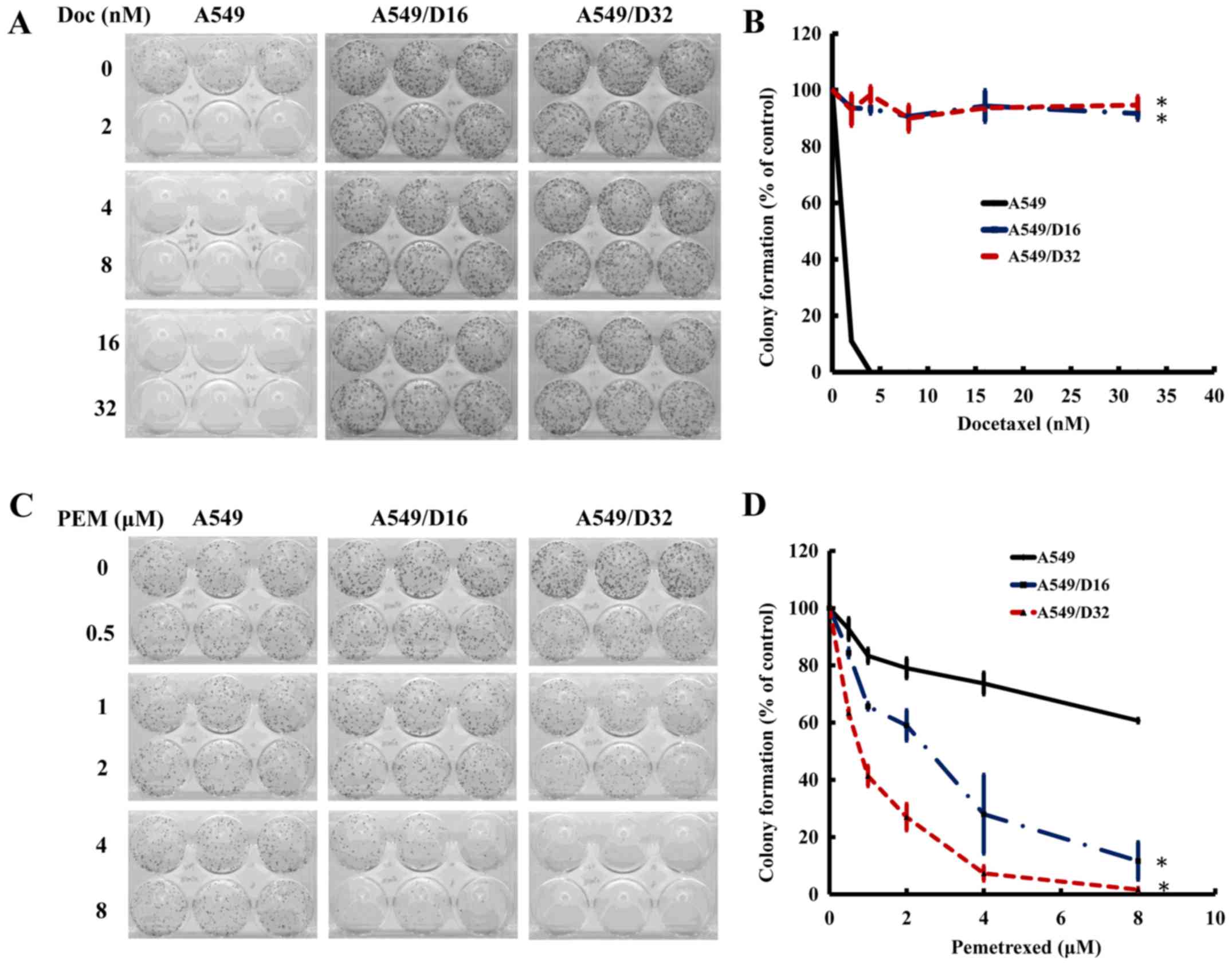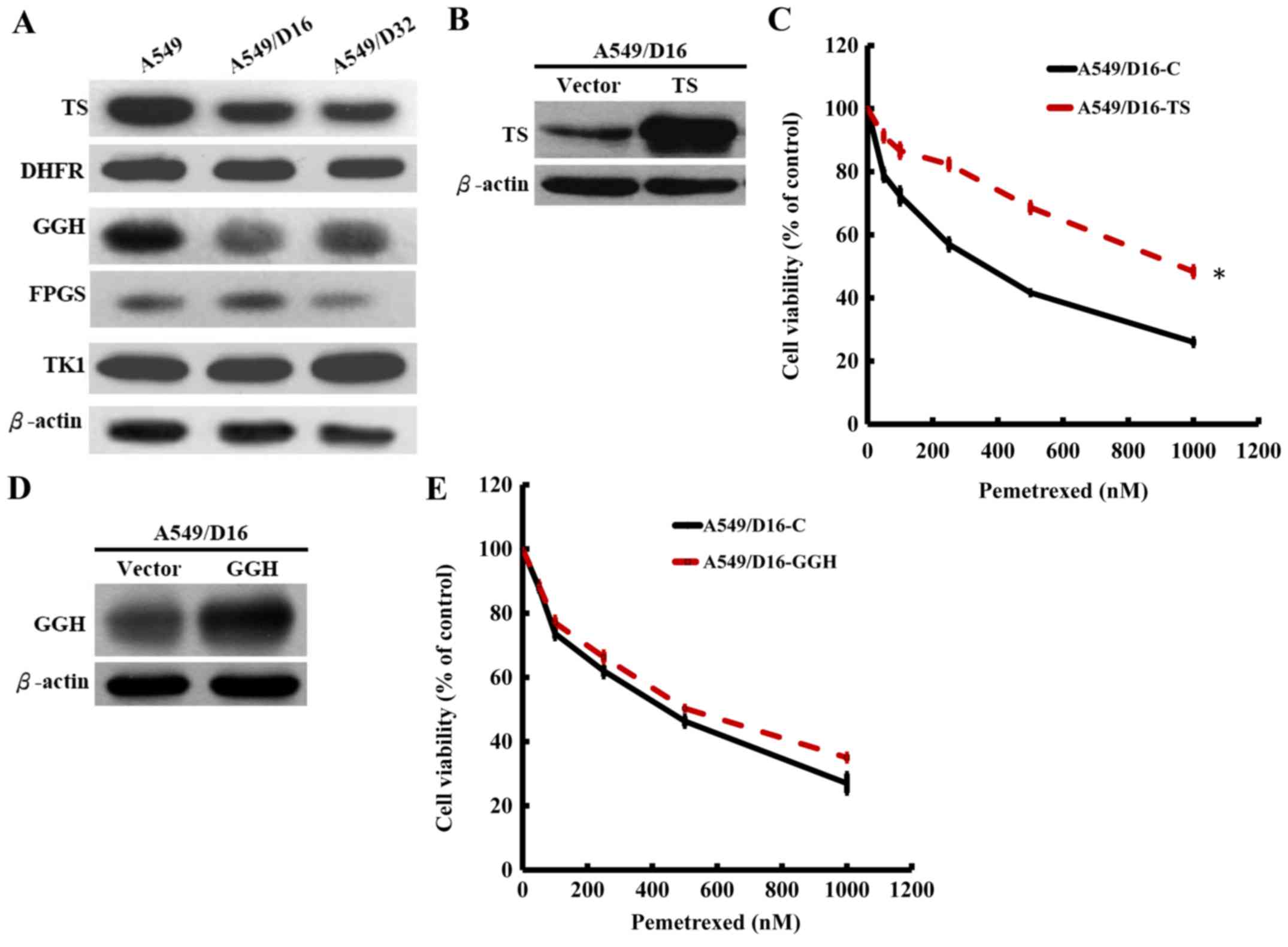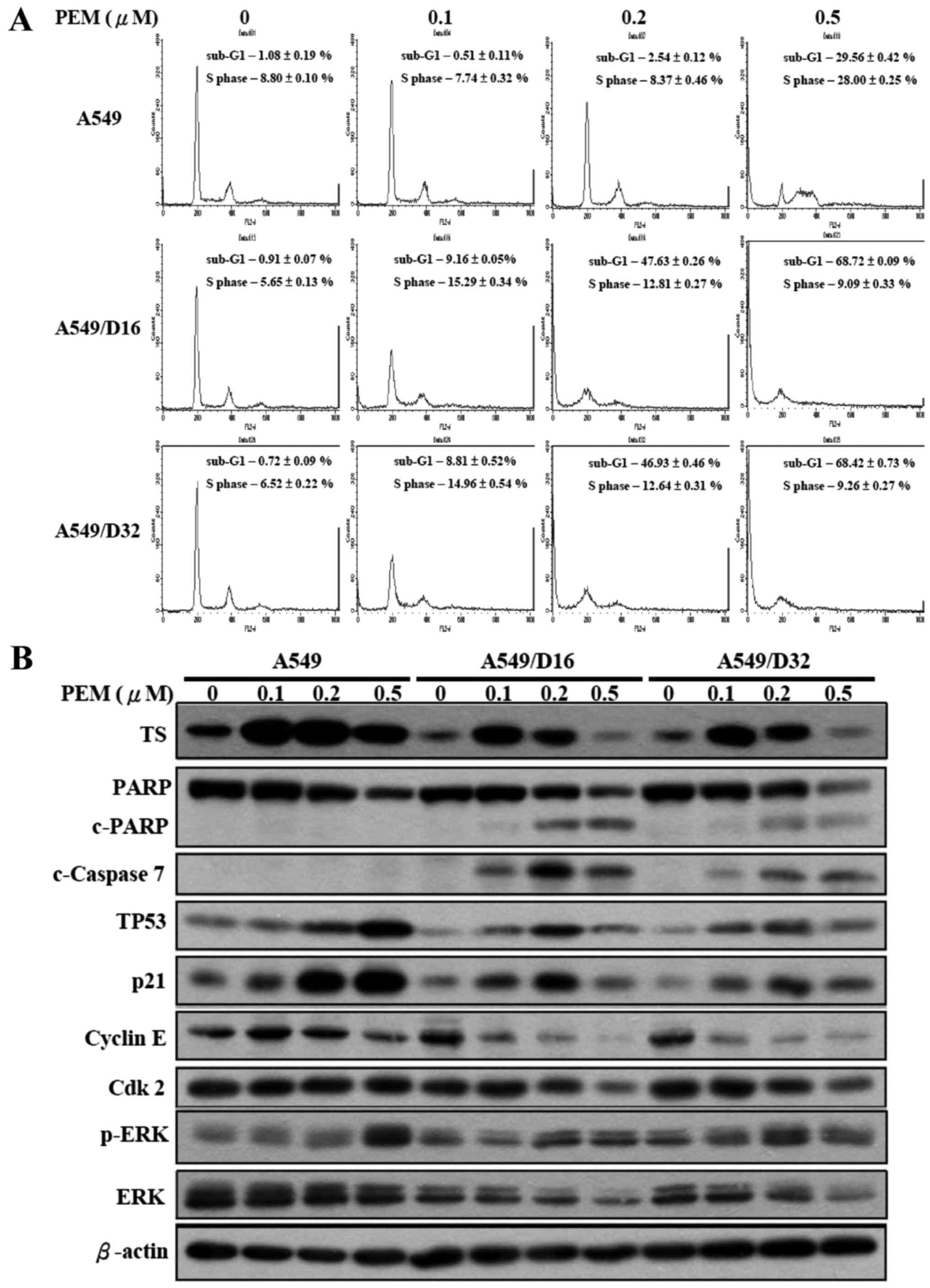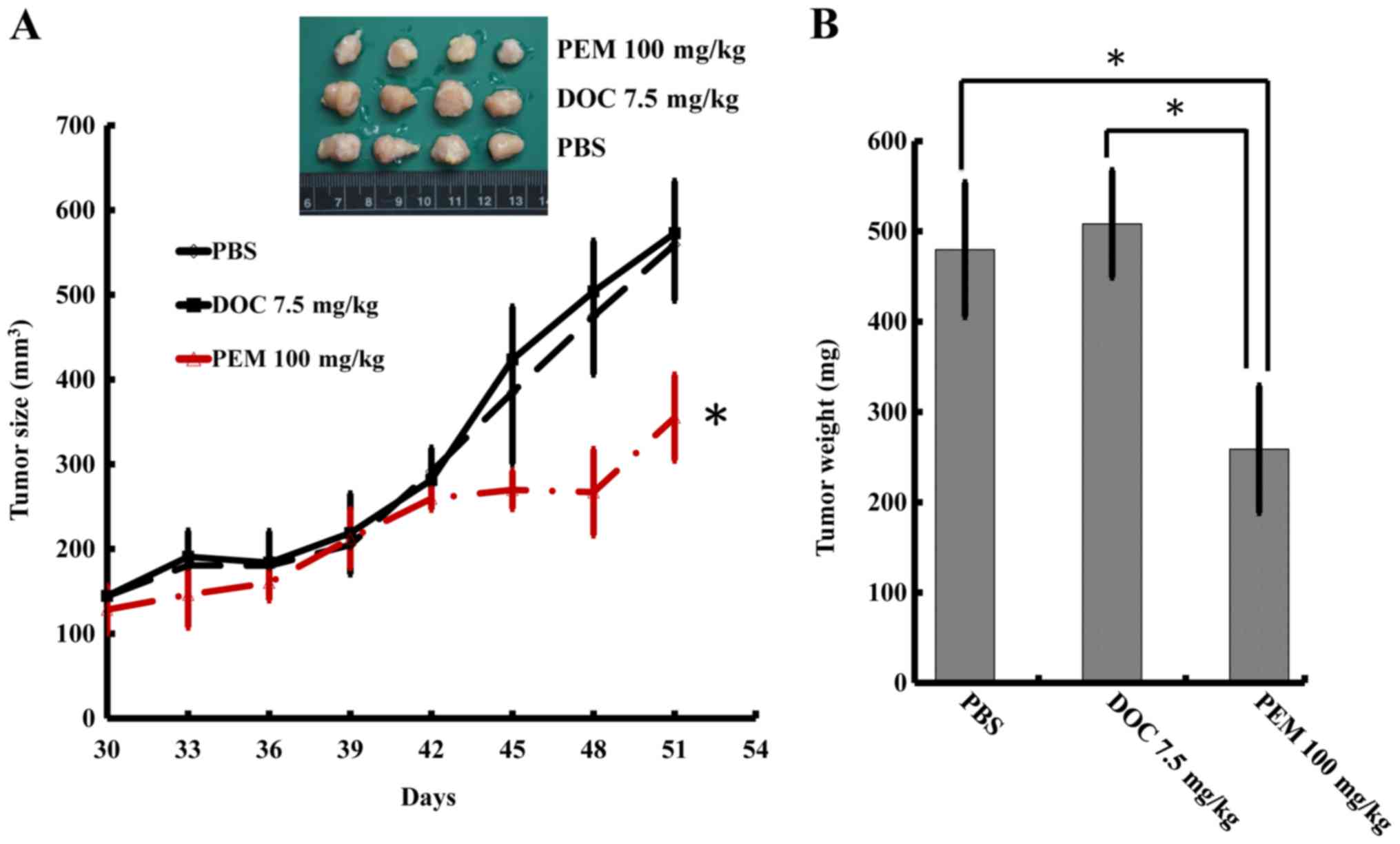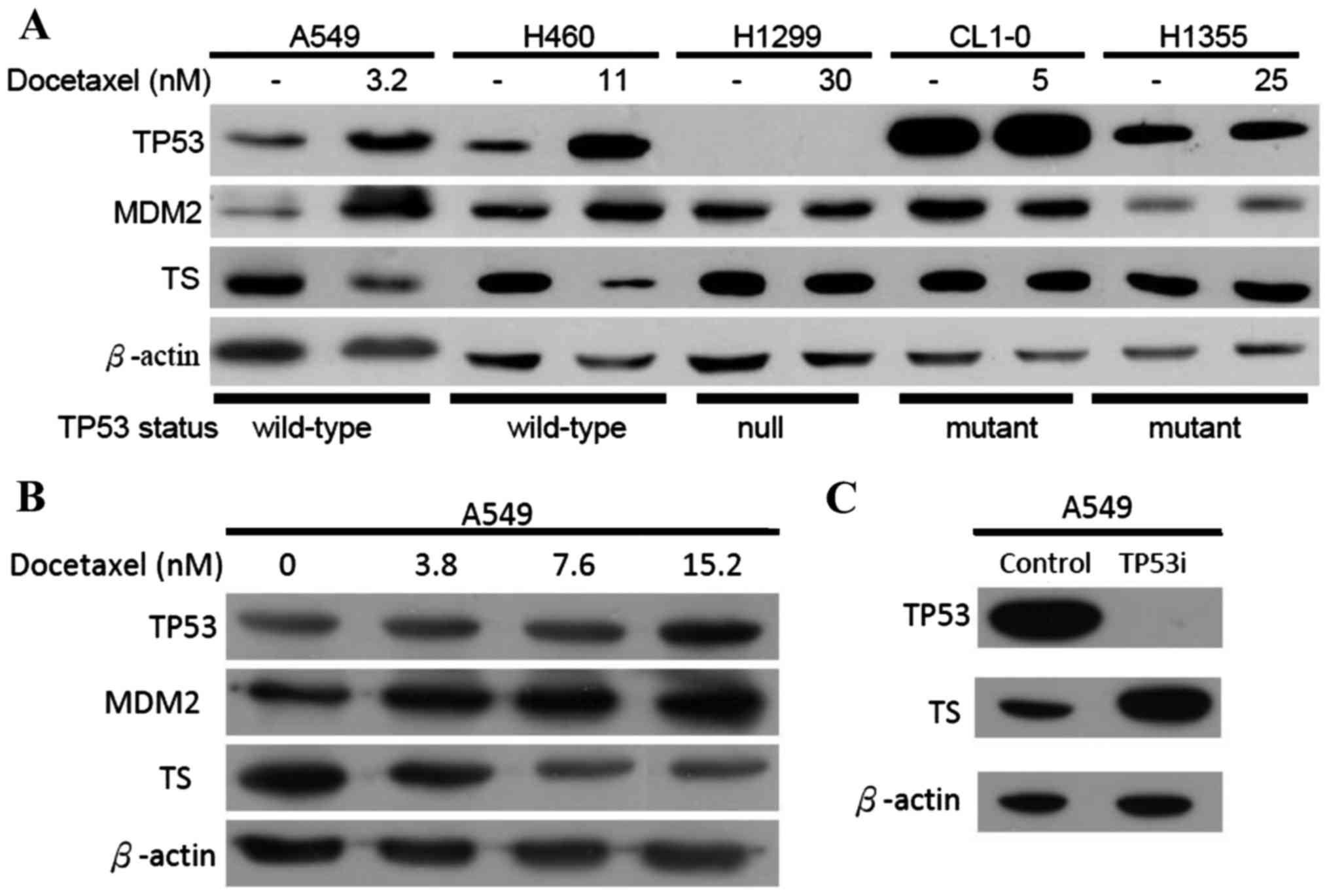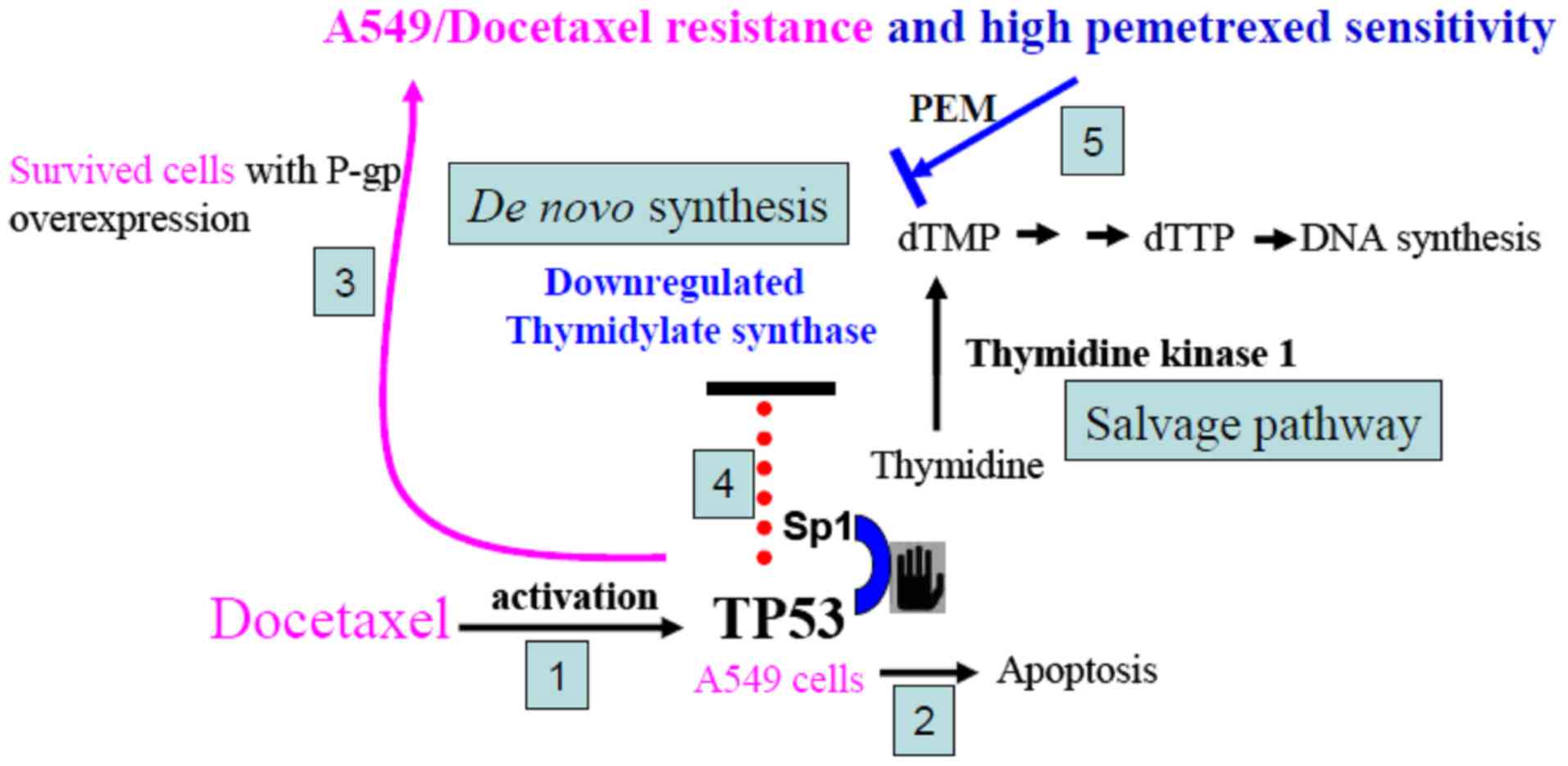|
1
|
Torre LA, Bray F, Siegel RL, Ferlay J,
Lortet-Tieulent J and Jemal A: Global cancer statistics, 2012. CA
Cancer J Clin. 65:87–108. 2015. View Article : Google Scholar : PubMed/NCBI
|
|
2
|
Roengvoraphoj M, Tsongalis GJ, Dragnev KH
and Rigas JR: Epidermal growth factor receptor tyrosine kinase
inhibitors as initial therapy for non-small cell lung cancer: Focus
on epidermal growth factor receptor mutation testing and
mutation-positive patients. Cancer Treat Rev. 39:839–850. 2013.
View Article : Google Scholar : PubMed/NCBI
|
|
3
|
Alamgeer M, Ganju V and Watkins DN: Novel
therapeutic targets in non-small cell lung cancer. Curr Opin
Pharmacol. 13:394–401. 2013. View Article : Google Scholar : PubMed/NCBI
|
|
4
|
Fitzpatrick FA and Wheeler R: The
immunopharmacology of paclitaxel (Taxol), docetaxel (Taxotere), and
related agents. Int Immunopharmacol. 3:1699–1714. 2003. View Article : Google Scholar : PubMed/NCBI
|
|
5
|
Horwitz SB: Mechanism of action of taxol.
Trends Pharmacol Sci. 13:134–136. 1992. View Article : Google Scholar : PubMed/NCBI
|
|
6
|
Leonard GD, Fojo T and Bates SE: The role
of ABC transporters in clinical practice. Oncologist. 8:411–424.
2003. View Article : Google Scholar : PubMed/NCBI
|
|
7
|
Fojo AT and Menefee M: Microtubule
targeting agents: Basic mechanisms of multidrug resistance (MDR).
Semin Oncol. 32 Suppl 7:S3–S8. 2005. View Article : Google Scholar : PubMed/NCBI
|
|
8
|
Baldwin CM and Perry CM: Pemetrexed: A
review of its use in the management of advanced non-squamous
non-small cell lung cancer. Drugs. 69:2279–2302. 2009. View Article : Google Scholar : PubMed/NCBI
|
|
9
|
Shih C, Habeck LL, Mendelsohn LG, Chen VJ
and Schultz RM: Multiple folate enzyme inhibition: Mechanism of a
novel pyrrolopyrimidine-based antifolate LY231514 (MTA). Adv Enzyme
Regul. 38:135–152. 1998. View Article : Google Scholar : PubMed/NCBI
|
|
10
|
Goldman ID and Zhao R: Molecular,
biochemical, and cellular pharmacology of pemetrexed. Semin Oncol.
29 Suppl 18:S3–S17. 2002. View Article : Google Scholar
|
|
11
|
Zhang D, Ochi N, Takigawa N, Tanimoto Y,
Chen Y, Ichihara E, Hotta K, Tabata M, Tanimoto M and Kiura K:
Establishment of pemetrexed-resistant non-small cell lung cancer
cell lines. Cancer Lett. 309:228–235. 2011. View Article : Google Scholar : PubMed/NCBI
|
|
12
|
Chen CY, Chang YL, Shih JY, Lin JW, Chen
KY, Yang CH, Yu CJ and Yang PC: Thymidylate synthase and
dihydrofolate reductase expression in non-small cell lung
carcinoma: The association with treatment efficacy of pemetrexed.
Lung Cancer. 74:132–138. 2011. View Article : Google Scholar : PubMed/NCBI
|
|
13
|
Liu Y, Yin TJ, Zhou R, Zhou S, Fan L and
Zhang RG: Expression of thymidylate synthase predicts clinical
outcomes of pemetrexed-containing chemotherapy for non-small-cell
lung cancer: A systemic review and meta-analysis. Cancer Chemother
Pharmacol. 72:1125–1132. 2013. View Article : Google Scholar : PubMed/NCBI
|
|
14
|
Sigmond J, Backus HH, Wouters D, Temmink
OH, Jansen G and Peters GJ: Induction of resistance to the
multitargeted antifolate Pemetrexed (ALIMTA) in WiDr human colon
cancer cells is associated with thymidylate synthase
overexpression. Biochem Pharmacol. 66:431–438. 2003. View Article : Google Scholar : PubMed/NCBI
|
|
15
|
Chiu LY, Ko JL, Lee YJ, Yang TY, Tee YT
and Sheu GT: L-type calcium channel blockers reverse docetaxel and
vincristine-induced multidrug resistance independent of ABCB1
expression in human lung cancer cell lines. Toxicol Lett.
192:408–418. 2010. View Article : Google Scholar : PubMed/NCBI
|
|
16
|
Chiu LY, Hsin IL, Yang TY, Sung WW, Chi
JY, Chang JT, Ko JL and Sheu GT: The ERK-ZEB1 pathway mediates
epithelial-mesenchymal transition in pemetrexed resistant lung
cancer cells with suppression by vinca alkaloids. Oncogene.
36:242–253. 2017. View Article : Google Scholar : PubMed/NCBI
|
|
17
|
Shintani M, Urano M, Takakuwa Y, Kuroda M
and Kamoshida S: Immunohistochemical characterization of pyrimidine
synthetic enzymes, thymidine kinase-1 and thymidylate synthase, in
various types of cancer. Oncol Rep. 23:1345–1350. 2010.PubMed/NCBI
|
|
18
|
Yang TY, Chang GC, Chen KC, Hung HW, Hsu
KH, Sheu GT and Hsu SL: Sustained activation of ERK and
Cdk2/cyclin-A signaling pathway by pemetrexed leading to S-phase
arrest and apoptosis in human non-small cell lung cancer A549
cells. Eur J Pharmacol. 663:17–26. 2011. View Article : Google Scholar : PubMed/NCBI
|
|
19
|
van der Wilt CL, Backus HH, Smid K, Comijn
L, Veerman G, Wouters D, Voorn DA, Priest DG, Bunni MA, Mitchell F,
et al: Modulation of both endogenous folates and thymidine enhance
the therapeutic efficacy of thymidylate synthase inhibitors. Cancer
Res. 61:3675–3681. 2001.PubMed/NCBI
|
|
20
|
Chuang JC, Sheu GT, Wang PC, Liao FT, Liu
WS, Huang CF, Tseng MH and Wu MF: Docetaxel and 5-fluorouracil
induce human p53 tumor suppressor gene transcription via a short
sequence at core promoter element. Toxicol In Vitro. 26:678–685.
2012. View Article : Google Scholar : PubMed/NCBI
|
|
21
|
Barak Y, Juven T, Haffner R and Oren M:
mdm2 expression is induced by wild type p53 activity. EMBO J.
12:461–468. 1993.PubMed/NCBI
|
|
22
|
Wu X, Bayle JH, Olson D and Levine AJ: The
p53-mdm-2 autoregulatory feedback loop. Genes Dev. 7:1126–1132.
1993. View Article : Google Scholar : PubMed/NCBI
|
|
23
|
Chang JT, Chang GC, Ko JL, Liao HY, Liu
HJ, Chen CC, Su JM, Lee H and Sheu GT: Induction of tubulin by
docetaxel is associated with p53 status in human non small cell
lung cancer cell lines. Int J Cancer. 118:317–325. 2006. View Article : Google Scholar : PubMed/NCBI
|
|
24
|
Brown T, Pilkington G, Bagust A, Boland A,
Oyee J, Tudur-Smith C, Blundell M, Lai M, Saborido C Martin,
Greenhalgh J, et al: Clinical effectiveness and cost-effectiveness
of first-line chemotherapy for adult patients with locally advanced
or metastatic non-small cell lung cancer: A systematic review and
economic evaluation. Health Technol Assess. 17:1–278. 2013.
View Article : Google Scholar
|
|
25
|
Yang TY, Chang GC, Chen KC, Hung HW, Hsu
KH, Wu CH, Sheu GT and Hsu SL: Pemetrexed induces both intrinsic
and extrinsic apoptosis through ataxia telangiectasia
mutated/p53-dependent and -independent signaling pathways. Mol
Carcinog. 52:183–194. 2013. View
Article : Google Scholar : PubMed/NCBI
|
|
26
|
Lee Y, Chen Y, Chang LS and Johnson LF:
Inhibition of mouse thymidylate synthase promoter activity by the
wild-type p53 tumor suppressor protein. Exp Cell Res. 234:270–276.
1997. View Article : Google Scholar : PubMed/NCBI
|
|
27
|
Calascibetta A, Martorana A, Cabibi D,
Aragona F and Sanguedolce R: Relationship between thymidylate
synthase and p53 and response to FEC versus taxane adjuvant
chemotherapy for breast carcinoma. J Chemother. 23:354–357. 2011.
View Article : Google Scholar : PubMed/NCBI
|
|
28
|
Giovannetti E, Backus HH, Wouters D,
Ferreira CG, van Houten VM, Brakenhoff RH, Poupon MF, Azzarello A,
Pinedo HM and Peters GJ: Changes in the status of p53 affect drug
sensitivity to thymidylate synthase (TS) inhibitors by altering TS
levels. Br J Cancer. 96:769–775. 2007. View Article : Google Scholar : PubMed/NCBI
|
|
29
|
Horie N and Takeishi K: Identification of
functional elements in the promoter region of the human gene for
thymidylate synthase and nuclear factors that regulate the
expression of the gene. J Biol Chem. 272:18375–18381. 1997.
View Article : Google Scholar : PubMed/NCBI
|
|
30
|
Wilson PM, Fazzone W, LaBonte MJ, Lenz HJ
and Ladner RD: Regulation of human dUTPase gene expression and
p53-mediated transcriptional repression in response to
oxaliplatin-induced DNA damage. Nucleic Acids Res. 37:78–95. 2009.
View Article : Google Scholar : PubMed/NCBI
|
|
31
|
Bodner SM, Minna JD, Jensen SM, D'Amico D,
Carbone D, Mitsudomi T, Fedorko J, Buchhagen DL, Nau MM, Gazdar AF,
et al: Expression of mutant p53 proteins in lung cancer correlates
with the class of p53 gene mutation. Oncogene. 7:743–749.
1992.PubMed/NCBI
|
|
32
|
Takahashi T, Nau MM, Chiba I, Birrer MJ,
Rosenberg RK, Vinocour M, Levitt M, Pass H, Gazdar AF and Minna JD:
p53: A frequent target for genetic abnormalities in lung cancer.
Science. 246:491–494. 1989. View Article : Google Scholar : PubMed/NCBI
|















